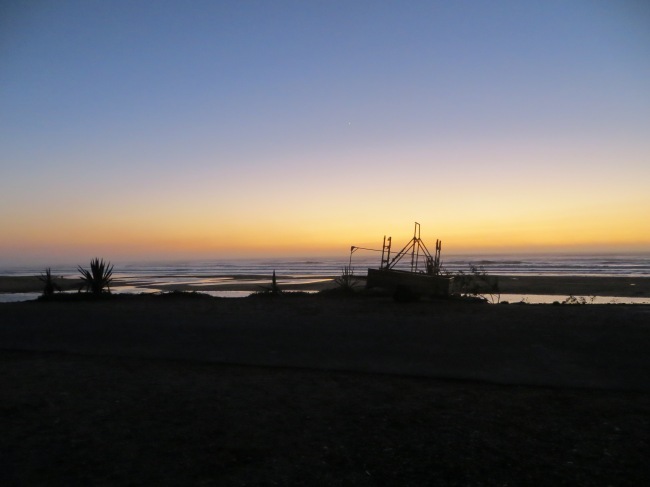10 years ago, Berlin mayor Klaus Wowereit said “Berlin ist arm, aber sexy” (Berlin is poor, but sexy). Seven years later, after an influx of party-hungry tourists and hipsters (seemingly to be mainly hailing from Brooklyn), he went on to say “Wir wollen, dass Berlin reicher wird und sexy bleibt” (We want Berlin to become richer and stay sexy). That being said, in the past few months there seem to have been quite a few stories running rampant around the internet that contest Berlin’s hip and “sexy” status.
Back in February, Rolling Stone ran a story about the notorious and (notoriously) exclusive Berlin club Berghain, a venue previously known for its doors that never seem to close (particularly on weekends) and its long history of radical and innovative DJs (Rolling Stone put together ‘The Essential Berghain Playlist‘ if you’d like to sample the infamous EDM Berghain sound). The club has also been voted as “the best club in the world” by the likes of the New York Times, with entire articles existing elsewhere that are devoted to telling readers how to get past the doors and into the MDMA fueled interiors. A friend here in Prague recently succeeded in doing just that and spent about 20 minutes showing me pictures of her arms and back, bruises of questionable origin blooming in deep shades of purple after a blurry night at the club (she is much, much cooler than I am, I’m afraid).
According to this Rolling Stone article, though, the club is indicative of a far more systemic problem in “Europe’s Party Capital.” Mainly that “the venue stands at the intersection of the bigger trends facing the city, namely gentrification, a rise in low-fare tourism and a flood of international hype, [which poses] an awkward question: What does it mean for a club to be underground when the entire world wants to dance there?”
Gawker followed this article with a predictably blunt claim of their own: “Berlin Is Over. What’s Next?” which was then followed by The Atlantic’s rebuttal that: “No One Is Happier About Berlin Being ‘Over’ Than Berlin.” So, where do I come into all of this? Well, I’ve been lucky enough to make the (only 5 hour!) trek to Berlin a couple times in the past few months and I’m happy to say that if Berlin is over, no one has gotten around to informing Berlin of that quite yet.
Either that, or (and this is far more likely) Berlin really doesn’t give a damn.
 The city may be crawling with hipsters (seriously. I lived in Madison, Wisconsin for years and I’ve still never seen anything like it), but it really is a fantastic city–and definitely still very sexy.
The city may be crawling with hipsters (seriously. I lived in Madison, Wisconsin for years and I’ve still never seen anything like it), but it really is a fantastic city–and definitely still very sexy.
Both visits were solo travels to Berlin, made by bus (Prague inhabitants, that is definitely the way to go; DB Bahn is overpriced and not nearly as comfortable as a cheap bus, such as http://www.studentagency.eu/ You do miss out on the fantastic views of the river by not taking the train, but you’ll save something like 50 euro).
I stayed in Kreuzberg the first time, at a great hostel called Grand Hostel Berlin. The second time around, I stayed near Rosenthaler Platz, which is perfect if you’re interested in taking a walk through the weekly Sunday flea market at Mauer Park or doing some vintage shopping, as I was. The flea market there is great, with people lounging over the hillside drinking beer and laughing, buskers providing a welcome soundtrack to your thrifting. I highly recommend it.
 I didn’t make it to Berghain (which, honestly, is not exactly my style anyway), but I did manage to see a lot of this vibrant and irresistibly cool city–and trust me, it is very, very cool. My advice? Walk. Walk along the Spree Canal, walk along the East Side Gallery, walk through Friedrichshain-Kreuzberg (wondering all along if your boots are scuffed enough, if your expression is just the right shade of blasé), walk through the Holocaust Memorial and be surprisingly moved as the pillars of stone get higher and higher around you, the ground more uneven, walk through the sprawling grounds of Tiergarten as you pass by Brandenburg Gate…
I didn’t make it to Berghain (which, honestly, is not exactly my style anyway), but I did manage to see a lot of this vibrant and irresistibly cool city–and trust me, it is very, very cool. My advice? Walk. Walk along the Spree Canal, walk along the East Side Gallery, walk through Friedrichshain-Kreuzberg (wondering all along if your boots are scuffed enough, if your expression is just the right shade of blasé), walk through the Holocaust Memorial and be surprisingly moved as the pillars of stone get higher and higher around you, the ground more uneven, walk through the sprawling grounds of Tiergarten as you pass by Brandenburg Gate…
So, walk. And walk a lot. And then try to tell me if you still think “Berlin is over.”
As always: readers, keep on reading. Writers, keep on writing.
X


